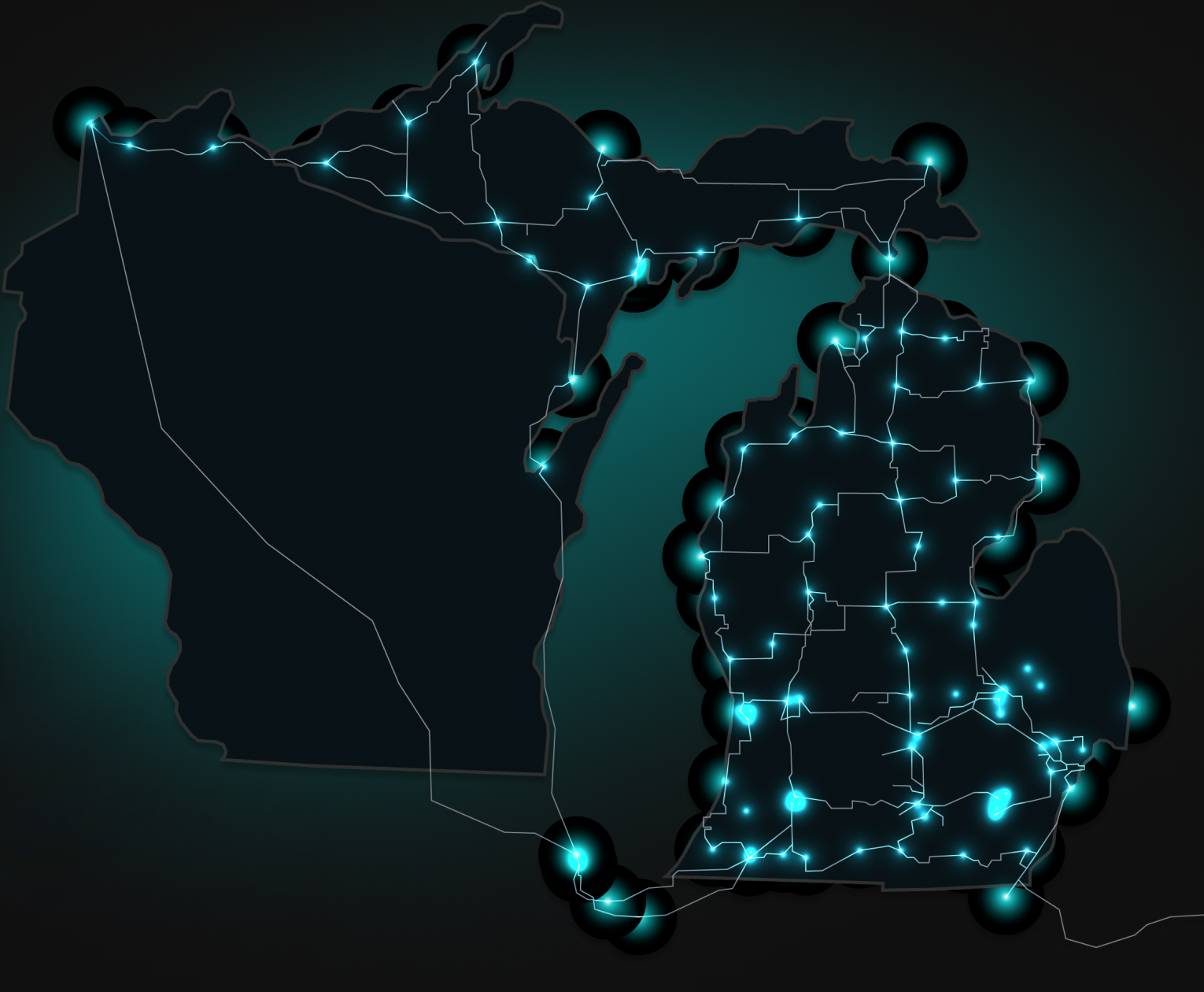MSU IT is making strides to improve access to technologies such as artificial intelligence (AI), machine learning, and augmented and virtual reality to enhance learning, research, community engagement and MSU’s reach. Additional improvements have been made in capturing valuable student feedback, retiring obsolete SIS applications, and updating data retention and storage limits with industry norms.
Generative AI
 To address the evolving needs of generative AI at the university, MSU IT has been engaging with campus partners to provide collaborative leadership in a cross-functional working group facilitated by MSU Ethics. Institutional guidance, data security assessments, and individual consultations were provided during 2023 regarding the use of generative AI in education, research, and operations.
To address the evolving needs of generative AI at the university, MSU IT has been engaging with campus partners to provide collaborative leadership in a cross-functional working group facilitated by MSU Ethics. Institutional guidance, data security assessments, and individual consultations were provided during 2023 regarding the use of generative AI in education, research, and operations.
Guidance will continue and be provided as needed as AI technology continues to advance. Additionally, MSU IT is helping to develop and implement digital transformation strategies to support a sustainable enterprise generative AI service for the university. Engagement with campus partners to define requirements and considerations for this service is underway.
Future of Veterinary AI Research
Two areas within veterinary medicine are collaborating with MSU IT to explore the use of AI to advance the work in their field.
The College of Veterinary Medicine (CVM) department of Large Animal Clinical Sciences plans to develop an edge-AI device to identify dairy cattle. The current method of associating identity through RFID technology is expensive, complex, and administratively burdensome for producers. An edge-AI system allows computations to be done close to where the data is collected and not in the cloud or offsite data center. It is estimated that using AI computer vision in this type of identity system would be 1/10th of the investment cost of RFID. It also provides increased privacy and availability since internet access is not required to process data. All of which is encouraging for future wide-spread adoption of the technology across the state of Michigan and the country.
 The CVM Veterinary Medical Center (VMC) sees great value in training disciplinary specialists on common uses of generative AI. An area which has seen much innovation in private industry are disciplines of diagnostic imaging and comparative medicine. To support the expansion and adoption of AI, the VMC is looking to develop specialist training workflows, which allow for supervised classification of medical findings in radiograph studies. The workflow would introduce specialists to AI in a way that is complementary to their education, would be moderated by the faculty advisor, and allow for an introduction to predictive analytics in veterinary radiology.
The CVM Veterinary Medical Center (VMC) sees great value in training disciplinary specialists on common uses of generative AI. An area which has seen much innovation in private industry are disciplines of diagnostic imaging and comparative medicine. To support the expansion and adoption of AI, the VMC is looking to develop specialist training workflows, which allow for supervised classification of medical findings in radiograph studies. The workflow would introduce specialists to AI in a way that is complementary to their education, would be moderated by the faculty advisor, and allow for an introduction to predictive analytics in veterinary radiology.
Explorance Blue
Providing academic staff with the proper tools is essential, as is the ability to capture student feedback about their experience in the classroom. MSU IT partnered with the Office of the Provost to invest in Explorance Blue, a new software to replace the Student Instructional Rating System, or SIRS, to collect feedback on courses and instruction.
“This enhanced tool will help our faculty and staff better identify where opportunities exist in our instruction to improve the overall teaching and learning experience for everyone,” said Marilyn Amey, assistant provost for Faculty and Academic Staff Development. “More robust data and the opportunity to include college-specific feedback will help guide educators, ultimately allowing academic staff to provide the most appropriate environments to achieve their own, their college’s, and their students’ learning objectives.”
SIS Auxiliary Project and Retired MSU Mainframe
 The Student Information System (SIS) project focused on the remediation and retirement of auxiliary applications in the SIS landscape, cutting the number of auxiliary systems in use by over half. Upon completion, 298 of the 545 SIS auxiliary systems in the MSU IT legacy environment were retired or scheduled for retirement, and another 247 were remediated. An additional 30 applications in the Registrar’s Office were also retired as part of this effort.
The Student Information System (SIS) project focused on the remediation and retirement of auxiliary applications in the SIS landscape, cutting the number of auxiliary systems in use by over half. Upon completion, 298 of the 545 SIS auxiliary systems in the MSU IT legacy environment were retired or scheduled for retirement, and another 247 were remediated. An additional 30 applications in the Registrar’s Office were also retired as part of this effort.
Initially launched in 1981, the MSU Mainframe was retired after successful implementation of the new Student Information System (SIS), Campus Solutions. These resulting efficiencies of the removal will save the university $1 million annually in hardware and maintenance expenses.
“Our last student information system was over 20 years old, based on an old mainframe with over 400 auxiliary systems that was very expensive to maintain. It didn’t have the functionality we need to ensure proper record keeping and advance our efforts around student success,” said Thomas Jeitschko, Interim Provost and Vice President for Academic Affairs. “One of the best experiences around this was to see the teams in action. This was a very collaborative process between IT, the academic side, and our support units.”
Data Retention Improvements
 To address concerns over reaching data storage limits, MSU IT Information Security partnered with the MSU Office of General Council (OGC) to improve MSU data retention policies that ensure compliance with legal requirements as well as proper stewardship of resources. Policy changes were made that now call for date ranges when setting litigation holds on email accounts and for annual reviews of resolved cases to release holds. This has already dramatically reduced storage limits by hundreds of gigabytes, which reduces maintenance burdens and costs.
To address concerns over reaching data storage limits, MSU IT Information Security partnered with the MSU Office of General Council (OGC) to improve MSU data retention policies that ensure compliance with legal requirements as well as proper stewardship of resources. Policy changes were made that now call for date ranges when setting litigation holds on email accounts and for annual reviews of resolved cases to release holds. This has already dramatically reduced storage limits by hundreds of gigabytes, which reduces maintenance burdens and costs.
Building on this effort to improve data retention policies, MSU IT is looking forward to reviewing other opportunities in the university’s broader ecosystem, including Microsoft, to increase efficiency and improve stewardship of resources.














